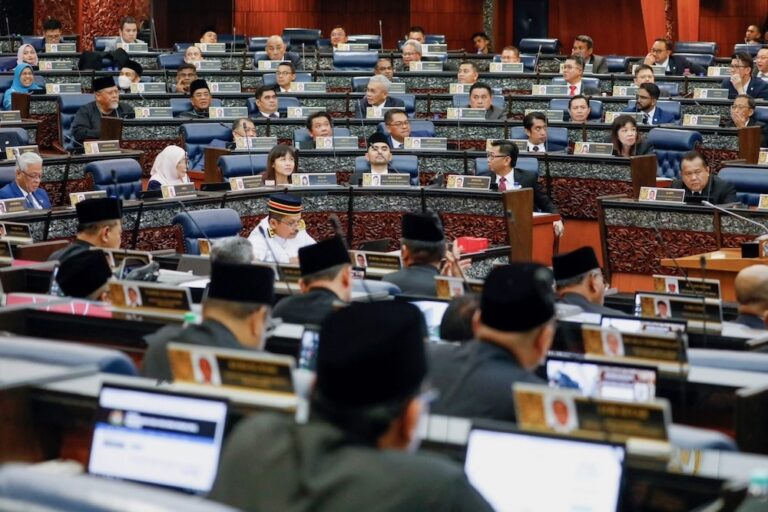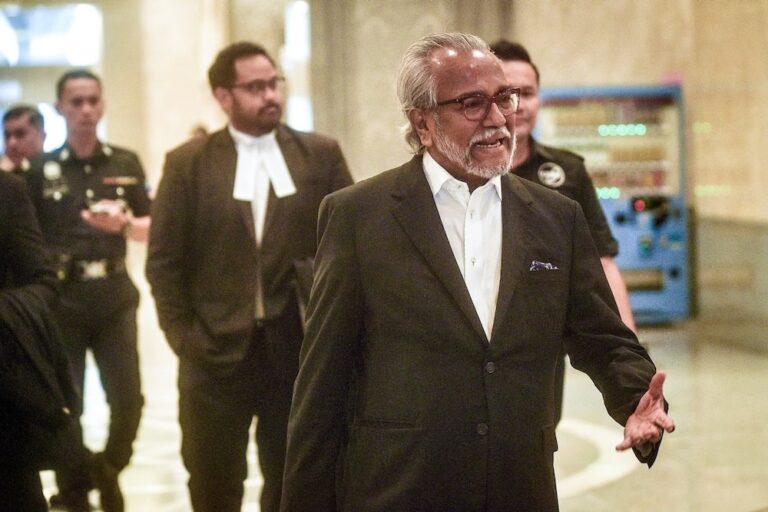Opposition senators insisted that the anti-Fake News law should be reformed rather than repealed.
This article was originally published on article19.org on 13 September 2018.
ARTICLE 19 and CIVICUS are extremely disappointed that the Senate (Dewan Negara) has rejected a bill to repeal the repressive Anti-Fake News Act 2018. International and national rights groups, UN experts and Malaysian civil society have raised serious concerns that the law is inconsistent with international standards and may be used to violate the right to freedom of expression. The failure to abolish the law runs contrary to the new government’s commitment to reform the restrictive environment for expression and public discourse established by the previous Barisan Nasional government.
According to news reports, the repeal bill was voted down because opposition senators felt that the law addressed a pressing need and should be reformed rather than repealed, with one senator stating, “fake news is a threat to our political landscape”. The House of Representatives (Dewan Rakyat), which passed the repeal bill on 16 August, is expected to amend the bill and table it for a vote in the next sitting of Parliament.
The Anti-Fake News Act passed by the previous government presents a serious threat to freedom of expression. ‘Fake news’ is an extremely vague term, which is undefined in the law, leaving it open to arbitrary application by authorities. Legislation criminalising or otherwise censoring ‘fake news’ gives authorities the exclusive power to judge the ‘truth’ of communications and make determinations about what information the public may access. ‘Fake news’ laws, often justified by the supposed need to protect the public from misinformation, more often act as tools for governments to restrict the presentation of dissenting views or ideas in violation of the right to freedom of expression.
International standards require that restrictions on freedom of expression be clearly set out in law, and necessary and proportionate to protect a legitimate aim. UN and regional Special Rapporteurs have made it clear that broad restrictions on ‘fake news’ do not pass that test, stating that, “General prohibitions on the dissemination of information based on vague and ambiguous ideas, including ‘false news’ or ‘non-objective information’, are incompatible with international standards for restrictions on freedom of expression”.
ARTICLE 19’s analysis of the Anti-Fake News Act describes the various ways in which it violates international standards and constitutes a threat to freedom of expression, and makes clear that the law must be repealed in its entirety. Concerns around misinformation must be addressed through less restrictive policy measures, and not through far reaching criminal provisions.
Our organisations believe that the Senate’s rejection of the bill is a regressive step that runs counter to the government’s manifesto promises—endorsed in the recent elections—to reform legislation that restricts human rights, including the right to freedom of expression.
We call on the government and parliament to ensure the Anti-Fake News Act is repealed in its entirety, and to take measures to create an environment that enables the enjoyment of the rights to freedom of expression and opinion, and protects those expressing controversial or minority viewpoints from censorship or retribution.
We further urge the government to reform or repeal other laws that have been used to stifle criticism and dissent or restrict the right to freedom of expression, including the Sedition Act 1948, Official Secrets Act 1972, Communication and Multimedia Act 1998, Printing Presses and Publications Act 1984 and Film Censorship Act 2002.



